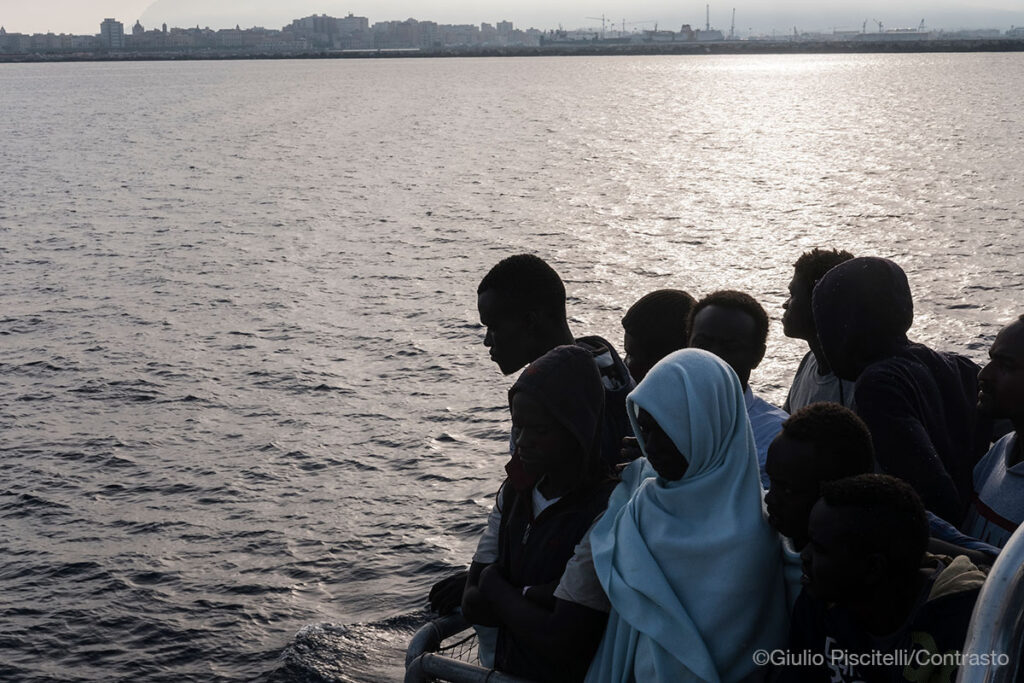In over 70 countries being gay is considered illegal, resulting in severe persecution as well as the death penalty. Transgender individuals also face violent abuse, which often results in abductions or murders, as shown by Nadia’s story, who was originally from Iraq, a country in which she faced abuse and abduction by an extremist militia targeting transgender people. These terrible realities go against the 2007 Yogyakarta Principles and the Yogyakarta Principles plus 10, which affirm the human rights of LGBTQI+ individuals.
LGBTQI+ is an umbrella term for lesbian, gay, bisexual, transgender, queer (or questioning), and intersex. Members of this group have always existed in societies around the world, but throughout history laws punishing such individuals have been established, endangering their lives. This pushes many to flee their countries of origin or residence, in search for a safer place and environment where they can be free to express their identity and exercise their rights without persecution. However, members of this community face additional challenges compared to heterosexual and cisgender asylum seekers and refugees.
Research has found that LGBTQI+ individuals who survived persecution due to their identity, face a higher incident of sexual violence, family persecution, childhood persecution and suicide attempts. Additionally, LGBTQI+ asylum seekers have unique trauma histories which, combined with the post-migration stressor they face after resettlement, require appropriate policies that address their needs and circumstances.
Among other challenges faced by asylum seekers belonging to this community is homo- and transphobic violence by nationals of the host country or other asylums seekers and refugees. LGBTQI+ refugees may experience marginalization in the country in which they resettle, making their integration harder. These challenges are amplified by xenophobic hostility due to their socioeconomic and migrant status, which puts them more at risk. In fact, LGBTQI+ asylum seekers and refugees face the risk of violence and abuse at every stage of their journey.
It is thus necessary that host countries develop an inclusive program of integration for LGBTQI+ individuals. Such programming must take into consideration the heterogeneity of the LGBTQI+ community and it must be tailored to accommodate the different needs that come with each identity or status. It is also important to keep in mind that LGBTQI+ refugees might have not received the appropriate health care they required prior to resettlement due to homophobia, transphobia, isolation or high costs. Intersex children might have undergone surgery or other procedures in order to align with societal standards revolving around genders. Lesbian, bisexual or queer women might often lack information available on sexual and reproductive health, and might have often been subjected to sexual violence, FGM or/and forced marriage. Men also have essential reproductive and sexual health needs, such as HIV (or other STIs) treatment and prevention. Additionally, trans peoples’ needs are often not taken into account in studies related to reproductive health, showing a lack of trans-inclusive approaches to this topic. As the UNHCR instructs, it is thus important that health professionals are trained on SOGIESC and that the needs of LGBTQI+ asylum seekers and refugees are addressed.
Much progress has been made in the fight for LGBTQI+ rights and freedoms around the world. However, much more needs to be done, especially for members of the LGBTQI+ community that are left vulnerable to trauma, violence, and exploitation, which is often the case for asylum seekers and refugees belonging to this group. Nevertheless, countries of resettlement – and transition – should implement inclusive programs of integration for LGBTQI+ individuals and address their needs in the most effective way possible.
If you are interested in the work of MOAS and our partners, please follow us on social media, sign up to our newsletter and share our content. You can also reach out to us any time via [email protected]. If you want to support our operations, please give what you can at www.moas.eu/donate

